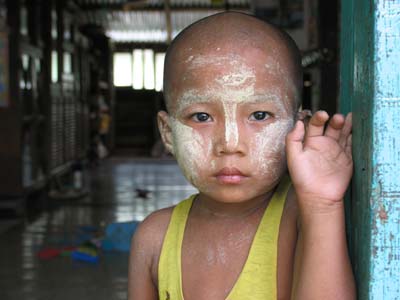The Chin National Front (CNF), together with its armed wing the Chin National Army (CNA), signed Geneva Call documents in Geneva, Switzerland, on 19 March, committing to the “highest international norms in terms of child protection and prohibition of sexual violence”.
In inking two “Deeds of Commitment”, the CNF formally agrees not to recruit or use children under the age of 18 in hostilities and puts every effort into protecting them from the effects of conflict.
According to a statement released by Geneva Call, the CNF also reaffirms its determination to strictly prohibit all forms of sexual violence in a region where cases of sexual violence have often been reported.
Paul Sitha, CNF Secretary-I, said: “Our signing of these two Deeds of Commitment clearly indicates the priority that we give to seeking to reduce the risk of harm to those who are not involved in the conflict. As with anti-personnel mines, we will actively take steps to ensure that the terms of the two new instruments are complied with.”
Geneva Call, a non-governmental organization that engages armed non-State actors towards respect of international humanitarian norms, said that the recent signing by the CNF came after years of engagement, training and workshop in the past.
In 2006, the Chin rebel group, which has been fighting for self-determination, democracy and federalism, had signed the Deed of Commitment banning anti-personnel mines.
The CNF reached ceasefire agreements with the central government of Burma in 2012.
Meanwhile, Chin researcher Salai Vum Za Piang, aka Salai PP, highlighted during his presentation in Delhi, India that the vast majority of land in Chin State is unsuitable for cultivation.
The Chin member of Burma’s delegates travelling to the neighbouring country to participate in environmental training said that only about 33 percent can be used for agriculture-based business in Burma’s western state.
Salai PP, a researcher at the Myanmar Development Resource Institute, added that 67 percent of land in the country’s least developed state is unusable for agricultural purposes according to the research survey.
One of the main reasons cited is the region’s steep and rugged mountainous geography.
At his meeting with Chin refugee communities in the Indian city last week, he described poverty as one of the most serious challenges facing Chin people during Burma’s current political transition period.
He mentioned that Chin State has a migration issue triggered by poverty, adding: “It [poverty] has pushed us to go away from our native land to other countries.”
These articles were originally published in Chinland Guardian on 20 March 2014.



